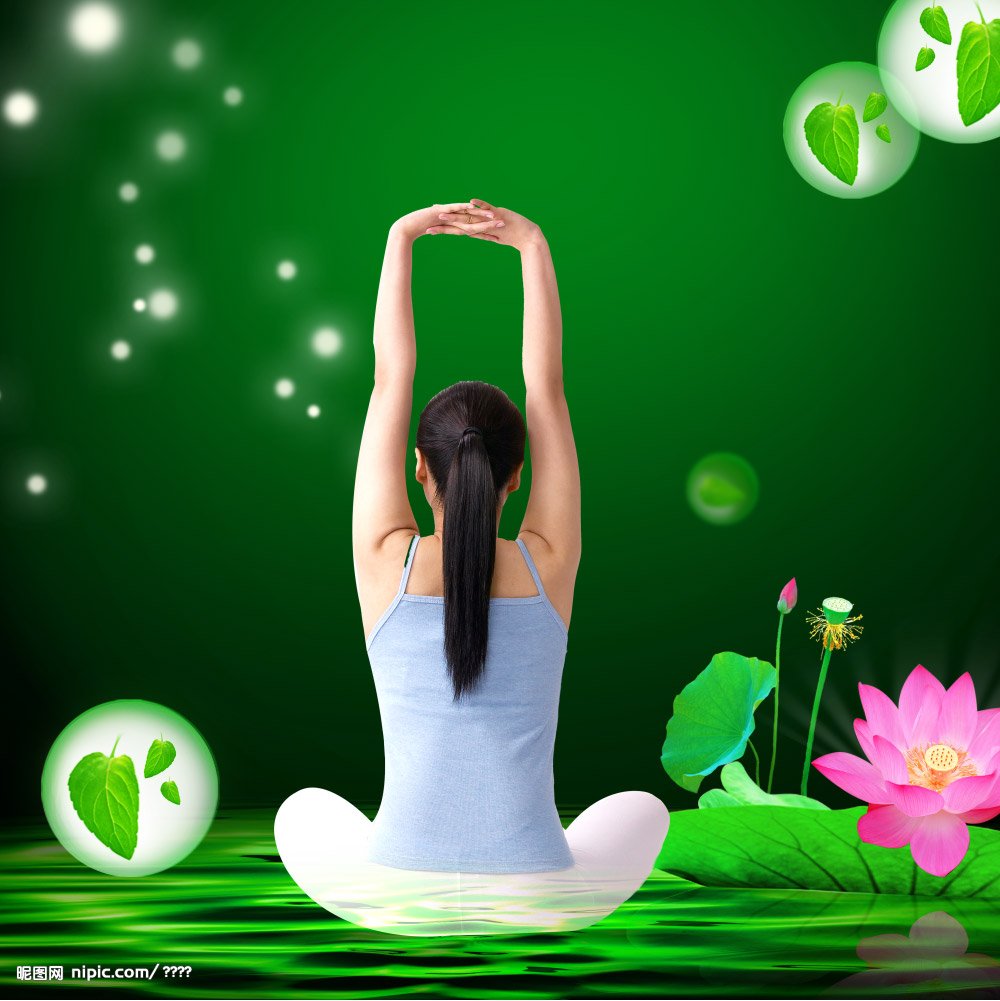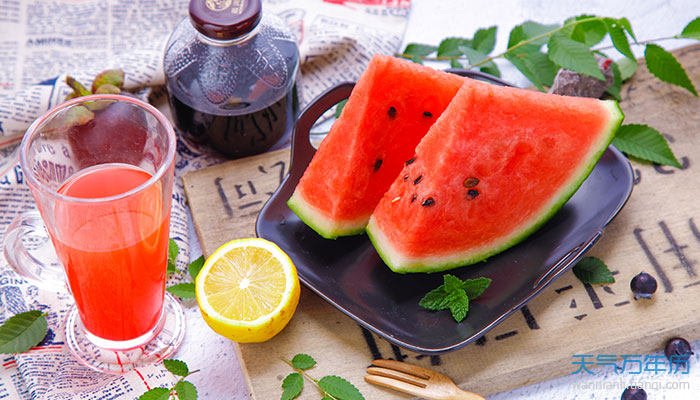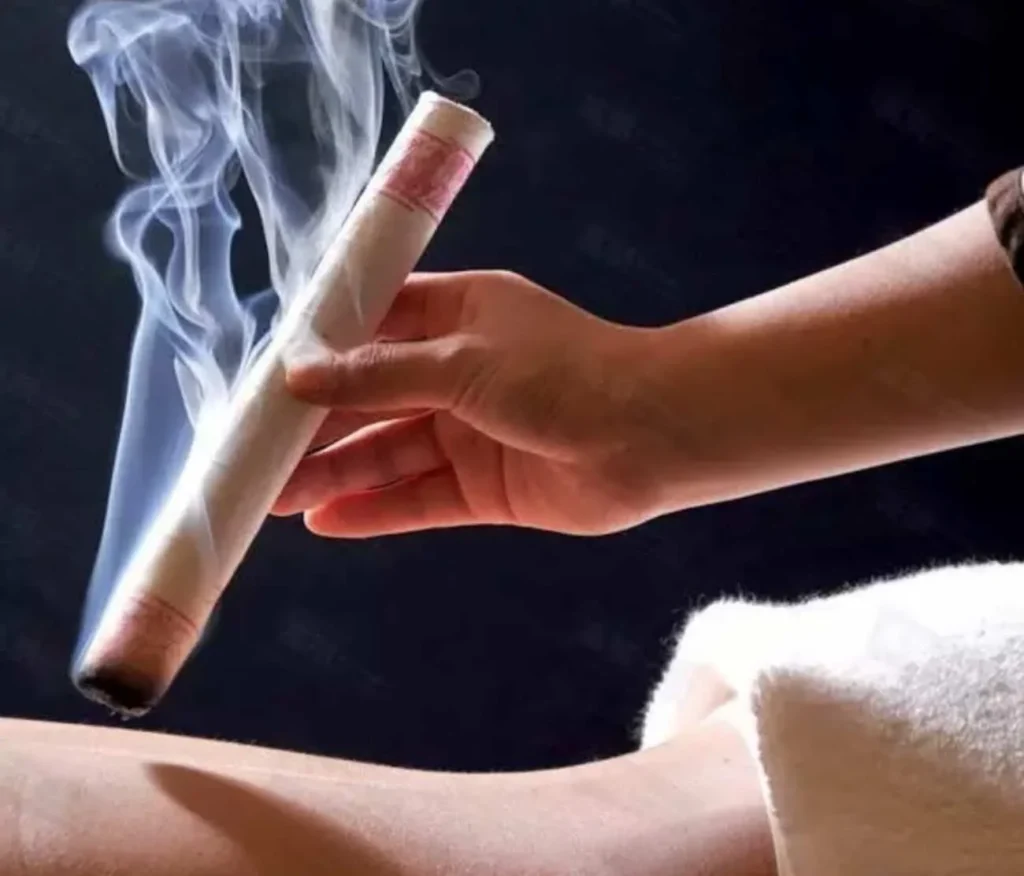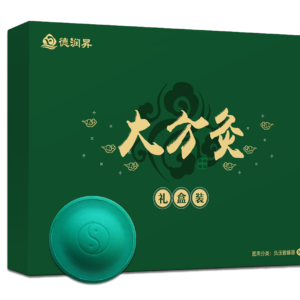Summer Wellness Practice: Cleasing Heat, Nourishing Heart & Dispelling Dampness
夏季养生 清燥解热 养心祛湿

Summer is the hottest and most humid time of the year, a season when people’s physical and mental energies tend to be depleted. As the ancient text the Yellow Emperor’s Internal Classic states, “Fire heat belongs to summer, it corresponds internally to the heart, and the heart rules the blood and houses the spirit.”
The key characteristics of summer are dryness and heat. To address these, “heat” is conquered by “coolness”, and “dryness” is expelled by “cleansing”. Therefore, clearing dryness and dispelling heat are the crucial aspects of summer wellness. Another summer trait is heavy rainfall and rapid evaporation, leading to high moisture in the air and dampness. So the main focus for summer self-care is clearing heat and dispelling dampness.
The emphasis of summer wellness is on mental and emotional regulation. Maintain a positive and stable mood, avoiding excessive sorrow or joy, which can further aggravate the heat. When the heart is calm, the person will naturally feel cool, achieving the goal of nourishing the self.

The Key Principles in Summer Wellness
1. Strengthen the spleen and dispel dampness. Dampness is a major pathogenic factor in the summer, and combined with the weakened spleen and stomach functions during this season, people often experience poor appetite, diarrhea, and a thick, greasy tongue coating. Therefore, one should take herbs that tonify the spleen and dispel dampness, such as patchouli and pogostemon.
2. Clear heat and relieve summer heat. With the high summer temperatures and excess heat, the heart fire tends to be excessive. Therefore, it is common to use herbs with clearing heat and detoxifying properties to dispel the summer heat, such as sour jujube, mint, honeysuckle, and forsythia.
3. Nourish the lungs and kidneys. According to the principles of traditional Chinese medicine, in summer the flourishing heart fire leads to a deficiency in the lungs and kidneys. One should focus on nourishing the yin of the lungs and kidneys, using herbs like wolfberry, raw rehmannia, lily, and mulberry to prevent excessive sweating and fluid depletion.
4. Treat winter diseases in summer. The concept of “treating winter diseases in summer” refers to using internal Chinese herbal medicines combined with external therapies like acupuncture to treat conditions that tend to occur in winter. For example, using fresh sesame flowers to massage chilblain-prone areas can help prevent winter frostbite, and applying medicated ointments to acupuncture points can treat winter asthma and rhinitis. Three-day moxibustion is an effective traditional Chinese method for this summer treatment of winter diseases.
5. Focus on “clearing”. In summer, with the high temperatures and profuse sweating, people often have poor appetites. The principle of “clearing” suggests eating lighter, more hygienic foods, avoiding overly greasy items, and consuming more fruits and water. The key to summer wellness is adapting to the natural environment and seasonal changes, with the emphasis on “clearing” to address the characteristic heat of summer.

Heart-Nourishing Foods in Summer
Herbs and foods that nourish the heart and calm the spirit in the summer include: Indian bread, ophiopogon, jujube, lotus seed, lily, bamboo leaf, and toasted hemp seed. These all have the ability to nourish the heart and calm the spirit.
In terms of diet, one should consume more small millet, corn, beans, fish, onions, potatoes, winter melon, bitter gourd, celery, asparagus, pumpkin, bananas, and apples. Limit intake of animal offal, egg yolks, fatty meats, fish roe, and shrimp. Avoid excessively salty foods like salted fish and pickles.
Heart-Nourishing Fruits and Gourds
Four common summer fruits and gourds that are beneficial for the heart:
1. Watermelon: Relieves restlessness and thirst, clears heat. Suitable for symptoms of excessive heat damaging fluids, summer heat restlessness and thirst, difficulty urinating, sore throat, and mouth sores.
2. Cucumber: With its green skin, abundant juice, and crisp tender texture, cucumber is about 97% water, making it an excellent thirst-quenching food. Fresh cucumber has the ability to clear heat and detoxify, and also helps with dampness, constipation relief, and pain relief. It’s ideal for those with summer constipation.
3. Peach: Generates fluids, lubricates the intestines, moves the blood, and resolves stagnation. Suitable for symptoms of thirst, blood stasis, difficulty with bowel movements, difficulty urinating, and distention. Eat 2 peaches after lunch and dinner daily.
4. Bitter Gourd: Bitter gourd has a bitter, cold taste. As it matures, it turns from green to yellow-red and develops a sweet, neutral nature. It can clear heat, relieve fatigue, and brighten the eyes. Those who are overworked can consume more bitter gourd.

Drink More Bone Broth
The key to good bone broth lies in the ingredients. Bone broth can help delay aging, as the bone marrow is the most crucial part of the skeleton. It is in the bone marrow that red and white blood cells are formed. As one ages and the body degenerates, the bone marrow’s ability to produce these blood cells declines, impacting metabolism. The collagen in bone broth can help boost the body’s capacity to generate red and white blood cells. For middle-aged and elderly people, regularly drinking bone broth can help slow bone degeneration. It also benefits the skeletal growth of adolescents.
The Psychological adjustment for heart-nourishing
In ancient times without air conditioning, the unbearable summer heat would often make people feel very irritable. Even with modern air conditioning, the scorching summer days can still easily disturb one’s peace of mind. Moreover, air conditioning is not a panacea, so learning self-regulation is the best approach.
Keep the living space cool and comfortable. In the early morning and evening when indoor temperatures are lower, open the doors and windows for ventilation. At noon when outdoor temperatures exceed indoor, close the doors and windows and draw the curtains. A cool, shaded environment can help the mind become calm and tranquil.
Keep the mind serene and peaceful. The intense summer heat can easily make people feel stuffy, uneasy, and fatigued. First and foremost, one should tranquilize the mind, maintain a harmonious spirit, and avoid an irascible temper that flares up at the slightest provocation, as this agitation generates internal heat. Maintaining a light and composed mindset will lead to a peaceful, calm state, avoiding anxious, tense emotions that can disrupt normal life and induce various health issues.

How then should one engage in self-regulation? The Inner Classic states: “Sleep late at night, rise early in the morning (to align with the deficient yin and abundant yang in nature. Supplement insufficient sleep with a midday nap), do not resent the long days, keep your will free of anger (do not become irritable from disliking the long summer days and vent your temper), allow your elegance and grace to blossom, let your qi be released (maintain a vibrant spirit, achieve the beauty befitting summer, and fully vent your qi), as if your love is outside (like facing your beloved, your emotions and will should be fully expressed outward without needing to be contained within) – this is the way to nourish and sustain the qi of summer.”The key lies in the concept of “qi” throughout. The secret to summer wellness is keeping oneself “free of anger,” allowing the abundant “qi” to be fully and normally “vented,” but not in a “chaotic” manner. Irritability is “chaos” and “against the flow,” which can injure the “spirit and consciousness,” leading to autumn fevers.

Modern people’s living conditions have greatly improved. In summer, one can maintain health by appropriately regulating diet and lifestyle, but one must not neglect the subjective psychological adjustment and calming of the heart and mind. In summer, one can intentionally engage in activities that can uplift the spirit: appropriate morning exercise, suitable recreation, proper summer retreat, and appropriate romantic intimacy… In summer, nourishing the “heart” is paramount, nourishing the “heart” comes first. The saying goes, “A joyful mood is better than ten good prescriptions.”
Exercise in the Summer
The exercise amount in summer should not be too large or too intense. Gentle exercises that produce a light sweat are best, to avoid excessive exercise and sweating that can damage the heart’s yin. For those who still insist on exercising in the summer, options like practicing Tai Chi, qigong, and natural health exercises are good choices.

Qigong and Tai Chi combine dynamic and static movements, blending softness and firmness, with proper opening and closing, rising and falling – the body is upright and balanced, allowing the righteous qi to reside within while warding off external pathogenic factors. This aligns with the waxing and waning of yin and yang in nature, making them among the best heart-nourishing exercises in summer.
Natural health exercises cultivate both form and spirit, nourishing the heart and concentrating the spirit, greatly benefiting physical and mental health.
Our weekly Sunday Qigong for Health class will teach and practice Heart-nourishing qigong and stress management in June, to find out more details in: https://yang-sheng.com/?p=12654
Recreational Activities in Serene Settings

In the scorching summer, one should not venture far, but seek out tranquil nearby places. In the early morning when the dawn light first shines and the air is fresh, one can take a stroll in lush gardens and parks to expel the old and take in the new. In the evening, strolling along the river or lakeside, the gentle breeze will calm the mind like still water, freeing the heart from worry and heat.
Precautions for Summer Exercise:
1. Morning exercise should not be too early, to avoid affecting sleep.
2. The body’s energy consumption is high in summer, so exercise intensity must be carefully controlled.
3. After exercise, do not use cold drinks to cool down. Some people habitually drink cold beverages after exercise. In fact, consuming cold drinks when the body temperature is already high can harm the stomach and intestines. The best post-exercise drink is a dilute salt water.

Dietary Considerations
Diet should be adjusted according to the seasonal changes. One needs to be cautious about selective eating habits. In terms of health preservation, the diet should align with the harmony of heaven, earth and human factors. For example, there can be regional differences in vegetables and fruits, and consuming those from other regions may cause discomfort. Health preservation leans more towards traditional Chinese medicine, where the key variable is one’s own physical condition that determines what and when to eat, rather than just relying on western medical treatments.
Here are some specific dietary recommendations for summer:
1. Eat more gourds: During hot summer, the body loses a lot of fluid, which needs to be replenished. The natural, clean, nutritious and biologically active water in vegetables is ideal for this. Gourds contain over 90% water. All gourd vegetables help lower blood pressure and protect blood vessels.
2. Consume more cooling vegetables: Eating cooling vegetables helps quench thirst, relieve distress, clear heat, detoxify and promote bowel movements. Gourds except pumpkins, as well as bitter gourd, luffa, cucumber, wax gourd, watermelon and honeydew fall into this category. Tomatoes, celery and lettuce are also cooling.
3. Eat “antimicrobial” vegetables: Summer is a peak season for human diseases, especially gastrointestinal infections. Consuming “antimicrobial” vegetables like garlic, onion, chives and scallions can help prevent illnesses. These allium vegetables contain rich plant-based broad-spectrum antimicrobials that can kill and inhibit various bacteria, fungi and viruses.

4. Consume ginger in summer: It is a folk saying that one should eat radish in winter and ginger in summer. Ginger is a warming food, and consuming it in summer helps expel dampness and cold from the body as the pores open up.
5. Drink red bean and Job’s tears soup to remove dampness and promote urination.
The diet should be light and easy to digest, avoiding greasy, spicy and highly-flavored foods. Light diet can clear heat, prevent heat stroke, suppress sweating, replenish fluids and stimulate appetite. Eat plenty of fresh vegetables and fruits to meet nutritional needs and prevent heat stroke. Staple foods should be thin porridge-like, such as lotus seed porridge. Moderate consumption of cooling beverages like plum juice and chrysanthemum tea is also advised, but avoid excessive intake of cold drinks which may damage the yang energy.
Additionally, pay attention to supplementing certain nutrients:
1. Ensure adequate vitamin intake from foods like tomatoes, bell peppers, winter melon, watermelon, bayberry, cantaloupe, peach and pear.
2. Replenish water and minerals, especially potassium, which can be obtained from beans/bean products, fruits and vegetables.
3. Consume moderate amounts of high-quality protein from fish, lean meat, eggs, milk and beans.
By following these dietary guidelines tailored for summer, one can maintain health and prevent seasonal ailments.

Dietary Precaution for Summer
1. Reduce sugar intake: Excessive sugar consumption can raise blood sugar levels, which promotes the growth of pathogenic bacteria like Staphylococcus aureus, leading to skin conditions like boils, abscesses and furuncles. Many diabetics also commonly develop skin abscesses due to blood sugar imbalances. Moreover, the breakdown of sugar produces metabolites like pyruvic acid and lactic acid, making the body more acidic. An acidic constitution weakens immunity and makes one susceptible to infections and skin diseases.
2. Follow seasonal dietary principles: After the Beginning of Summer, the hot summer season arrives. While clearing heat and relieving summer discomfort is crucial, traditional Chinese medicine also emphasizes eating the right foods to avoid harming the spleen and lungs. The renowned “Medicine King” Sun Simiao from the Tang Dynasty emphasized aligning diet with seasonal changes to nurture health.
3. Reduce bitter flavors, increase pungent flavors: Sun Simiao suggested “in the 72 days of summer, reduce bitter flavors and increase pungent flavors to nourish the lung qi.” Bitter flavors, while capable of clearing heat and detoxifying, can actually excessively stimulate the heart function and suppress the lung. Therefore, it’s not advised to consume too much bitter foods in summer. On the other hand, pungent flavors like radish, scallion, ginger and garlic can disperse, promote qi circulation, invigorate blood, open orifices and resolve dampness. This can help replenish the lung qi, especially for those with lung deficiency.
4. Avoid cold and raw foods: During summer, the body’s yang energy is in ascendance. Consuming too many cold and raw foods can weaken the spleen and stomach, leading to digestive issues. It’s better to have cooked, warm or room temperature foods that are easy to digest.
5. Adjust staple foods: In summer, it’s advisable to have thinner, porridge-like staple foods like lotus seed porridge, instead of heavy meals. This can help clear heat, prevent heat stroke, reduce perspiration, rehydrate and stimulate appetite.
By following these dietary guidelines tailored for the summer season, one can maintain health and prevent seasonal ailments.

Moxibustion – A Summer Wellness Remedy
Traditional Chinese medicine advocates “nourishing yang in spring and summer, and nourishing yin in autumn and winter.” Moxibustion, along with acupuncture and herbal medicine, are the three main wellness and therapeutic tools. During the summer, moxibustion is an excellent way to nurture health, as it warms the meridians and channels through stimulation of acupoints, thereby promoting qi and blood circulation, balancing yin-yang, and strengthening the body.
As the old saying goes, “With three years’ worth of moxa at home, you won’t need a doctor.” Moxibustion therapy uses moxa, a compressed material mainly made from mugwort, which is ignited and placed or suspended over acupoints or affected areas. The heat and medicinal effects of moxa can stimulate the meridians and prevent diseases. Modern medicine has confirmed that moxibustion can regulate organ function, promote metabolism, alter blood composition, increase white and red blood cell counts, and enhance the body’s immune and defense mechanisms.
There are various moxibustion techniques, including direct and indirect moxibustion. Direct moxibustion can leave scars, while indirect forms like ginger, garlic, salt and aconite moxibustion are more commonly used clinically.
For general wellness purposes, consumers don’t necessarily need to go to hospitals for moxibustion. It can be self-administered at home using a moxa burner. When choosing quality moxa products, experts recommend:

1. Select authentic mugwort variety
2. Choose moxa rolls made with mulberry bark or cotton paper bound with natural glutinous rice glue
3. Look for well-refined, soil-yellow moxa floss that’s elastic and easy to shape
4. Detect a mild, non-irritating fragrance from the moxa smoke
5. Observe even burning and minimal ash fall
6. Experience gentle, non-damaging warmth that penetrates deeply and feels comfortable
In the sweltering summer, moxibustion is an excellent way to warm and circulate yang energy. Regular moxibustion sessions of 10-20 minutes, 1-3 times a week, on common wellness acupoints like Zusanli, Zhongwan, Guanyuan and Shenque, can be greatly beneficial.

The 6 Less in Summer
1. Eat Less – Overeating can cause blood to concentrate in the digestive system, depriving other organs and leading to fatigue, as well as conditions like gallbladder disease, diabetes, and obesity.
2. Get Angry Less – “Unrestrained anger weakens qi.” Excessive anger disrupts the flow of qi, causing qi counterflow and stagnation, which can lead to cardiovascular diseases. Those prone to anger should consciously restrain themselves.
3. Speak Less – Excessive loud speech can deplete one’s lung qi and impair respiratory function, which is detrimental to health.
4. Desire Less – Pursuits should be grounded in reality, without indulging in fantasies, which can lead to disappointment and suffering.
5. Sleep Less – While the elderly tend to sleep more, excessive bed rest can damage yang energy. Moderate exercise helps maintain physical strength.
6. Have Less Sex – This is about preserving essence (jing) to nourish physiological functions.
By practicing these “6 less” in summer – eating, anger, speech, desires, sleep, and sexuality – one can better maintain health and vitality during this season.
In summary, this comprehensive guide has outlined a holistic approach to summer wellness rooted in traditional Chinese medicine principles. The key focuses include clearing dryness and heat, nourishing the heart and mind, and dispelling dampness – the characteristic attributes of the summer season.
By integrating these multifaceted summer wellness practices – spanning the physical, mental, and spiritual realms – individuals can better navigate the heat and humidity, maintain health and vitality, and cultivate an inner calm and serenity befitting the summer season. The article underscores the holistic wisdom of traditional Chinese medicine in optimizing seasonal wellness.




